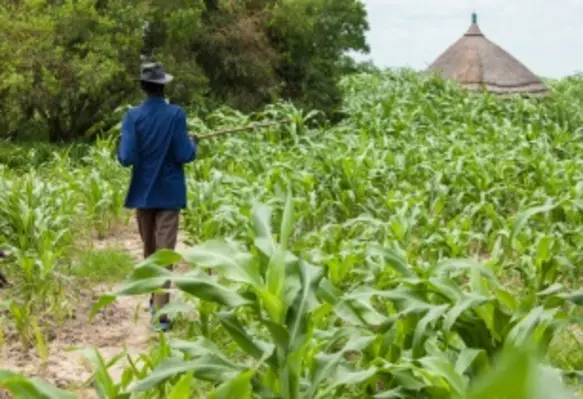Authorities in Wau join peacekeepers from the United Nations Mission in South Sudan (UNMISS) in marking World Environment Day
Ongoing conflict in bordering Sudan has cut off imports into Western Bahr El Ghazal, raising concerns about food security. Chinese Blue Helmets serving for peace in this young nation, therefore, came up with an innovative and sustainable plan that could potentially have positive impacts for community members. They decided to share their knowledge of small-scale kitchen gardens with local authorities.
Vegetables however, are not easy to cultivate and peacekeepers shared tips, tricks and basic scientific principles that guarantee a high-quality home harvest. While showcasing their garden produce and tasty meals obtained from them, peacekeepers also imparted easy-to-emulate lessons on waste segregation and management. With abundant rains currently, it is hoped such simple but effective methods of vegetable cultivation will trickle down to rural communities, giving them enough produce not only to ensure their families can eat but also to sell in local markets.
Trade has always been boosted by UNMISS engineers through their extensive repairs of roadways across South Sudan, with engineers from China being no exception. For Elia Kamilo Dimo, acting governor of western Bahr El Ghazal, communities should take advantage of these new cultivation methods, given relative stability in the state.
“One of the most critical things about the skills shared with the local community today is that they have tested these farming approaches on the soil and climatic conditions in the state,” explained Sam Muhumure, head of the UN Peacekeeping mission’s Field Office in Wau. “This means that the techniques shared actually work on the ground. I’m heartened that the Minister for Agriculture has found this intervention by our peacekeepers worthwhile to replicate across the state.”




